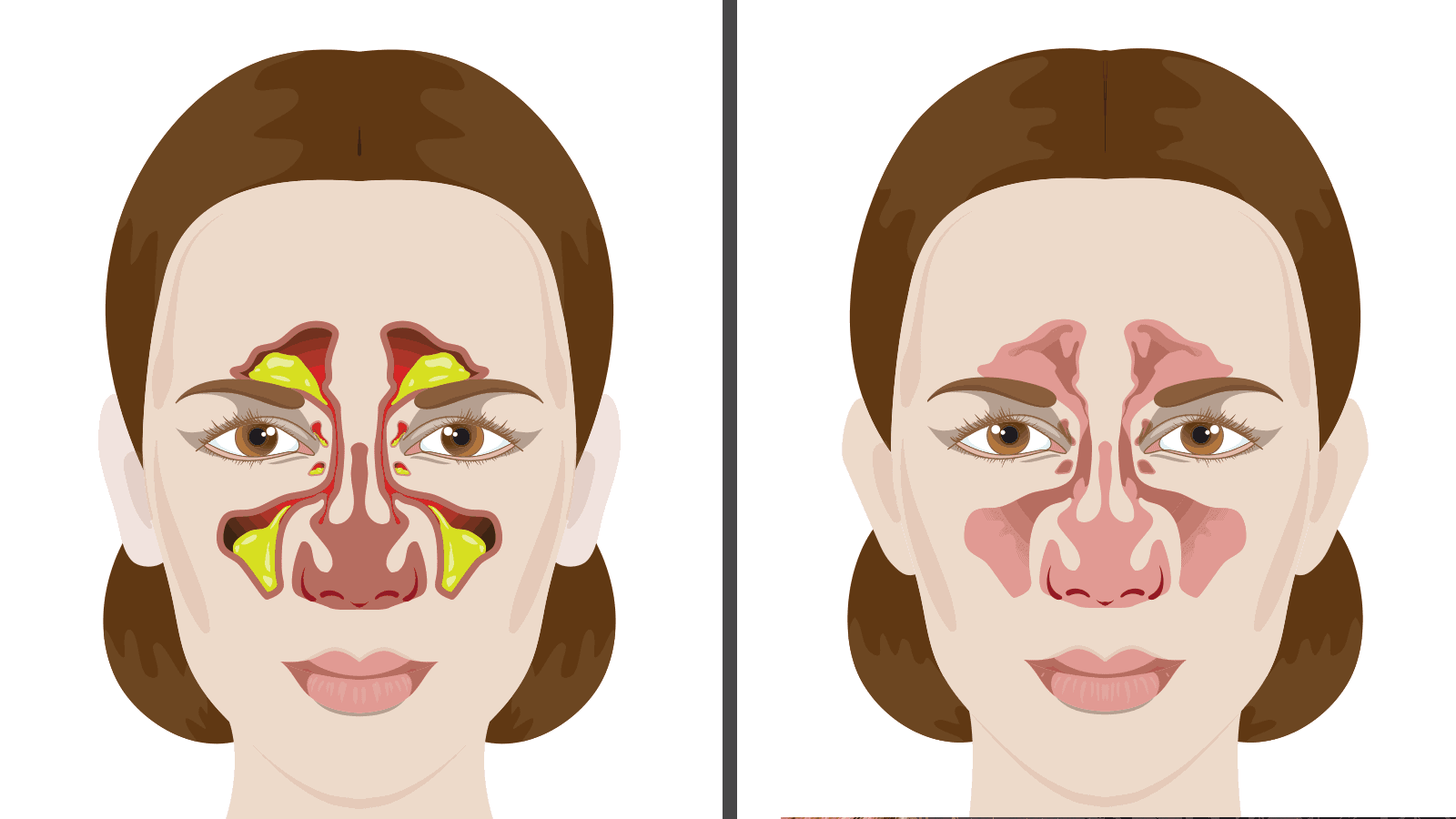Here’s something interesting to get us started: did you know that phlegm and mucus are not the same? It’s true.
The mucus gives us that dreaded sinus congestion when we suffer from a nasty cold. Phlegm settles in the respiratory system and makes its presence known when we cough or wheeze.
While undoubtedly gross, both substances serve essential (relatively similar) purposes, especially regarding safeguarding our health. Mucus is responsible for cleansing and moisturizing the nasal passages, humidifying the air we breathe, and filtering out particles such as dust and dirt. Both slimy concoctions are critical for protecting our respiratory organs, such as our lungs. They also contain antibodies and are natural anti-bacterial – both essential for fighting infections.
Although the only time we think about mucus is when we’re sick, our body produces about one-and-a-half liters of the stuff every day. Some illnesses boost mucus production and alter its consistency, making it all but impossible to ignore. (The miserable, stuffed-up feeling that colds provide is the physical manifestation of such alterations.)
What Causes the Overproduction of Mucus and Phlegm?
Illnesses are not the only thing that causes mucus and phlegm output. A variety of factors that might increase your body’s production of mucus and phlegm include:
- a cold or flu
- certain foods and beverages; dairy products, caffeine, soy, and spicy foods are the most common.
- a post-nasal drip
- pregnancy
- seasonal allergies
- throat disorders
Although a nuisance, having excess mucus and phlegm is rarely a serious medical problem. While there is no shortage of over-the-counter (OTC) medicines, you can also naturally cut down the mucus and phlegm your body produces.
Here are five simple ways to remove mucus and phlegm naturally:

1. Apple Cider Vinegar
For the unaware, apple cider vinegar (for brevity, ACV) is one of the most powerful, natural antibacterial agents. A couple of tablespoons throughout the day can help prevent excess phlegm production and promote a healthy pH balance. As ACV tends to be potent, mixing the product with water may help it be more palatable.
2. Air Humidifiers
Dry air can produce a whole bunch of nasty sinus and throat symptoms. As outside temperatures drop, we use our heating systems a bit more – which comes at a cost (literally and figuratively). Heaters dry out the air, producing symptoms such as dry eyes, skin, a sore throat, and even asthma!
Air humidifiers counteract dry air’s effects, allowing us to be a bit more comfortable. We’re also less prone to illness. Oh, if you don’t have an air humidifier – don’t worry – take a nice, hot shower or soak in a tub.
3. Ginger Tea
Ginger is an incredibly versatile ingredient. It’s a natural antioxidant, anti-bacterial, and – for this article – excellent decongestant. Ginger helps to soothe your chest and throat by drying out the water-laden mucus and phlegm. Research also shows how it supports lung health.
Here’s a quick four-step ginger tea recipe:
- Start with a 2-cup measuring beaker, and put in some grated ginger.
- Fill to the 1 ½-cup line with boiling water.
- Allow to sit for 10 minutes.
- After ten minutes, strain the water into a large mug. (You may want to add a bit of honey, sugar, or a similar substance for sweetness.)
4. Honey and Lemon
Both honey and lemon are great for fighting mucus and phlegm overload. Lemon is packed with vitamin C, which also boosts the immune system. Secondly, vitamin C can serve as an excellent preventative measure for congestion.
Honey is a favorite of cold sufferers because it adds flavors to every beverage, and you don’t have to worry about any adverse effects of refined sugar. Honey also contains potent antibacterial and anti-inflammatory properties, which are excellent when battling congestion.
5. Turmeric
Turmeric is a fantastic spice. The bioactive ingredient of turmeric – curcumin – provides over 150 potentially therapeutic properties including anti-inflammatory, antimicrobial, and cancer-fighting elements.
Perhaps curcumin’s most potent effect is as an anti-bacterial. Relatedly, mucus and phlegm are heavily concentrated with bacteria (and viruses), making adding curcumin a great choice. Curcumin is most commonly sold as an additive in turmeric but can also be purchased individually as a supplement.
Final Thoughts on Eliminating Mucus So You Will Feel Better
While it’s nice to know that the phlegm and mucus in our bodies are working for our benefit, we can all appreciate knowing we have the option to reduce the number of times we have to pull out that handkerchief or tissue to stifle a sniffle. Stay happy and healthy!




















